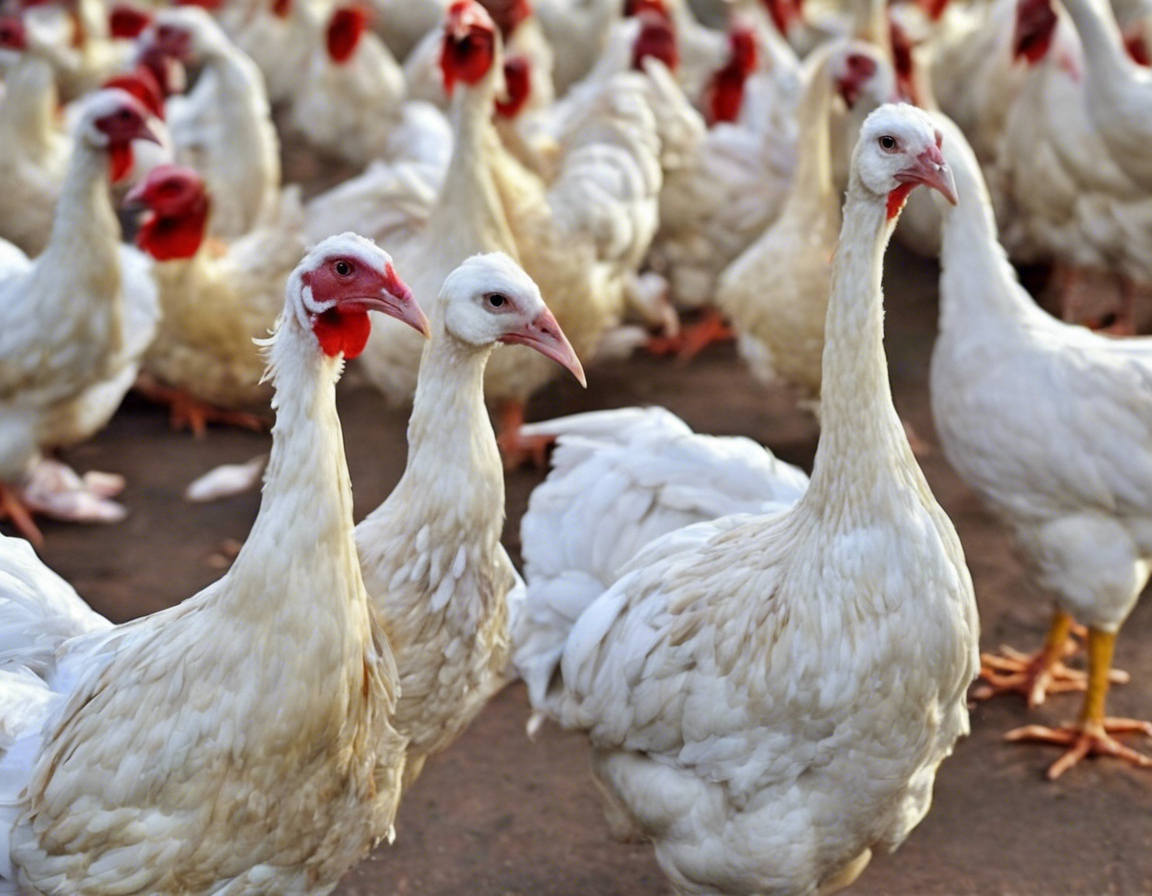Introduction
In recent news, the southern state of Kerala in India has been grappling with a bird flu crisis. The outbreak has raised concerns among both the government and the general public regarding its potential impact on human health and the economy. In this article, we will delve into the details of the bird flu outbreak in Kerala, its implications, and what steps are being taken to contain the spread of the disease.
Understanding Bird Flu
What is Bird Flu?
Bird flu, also known as avian influenza, is a viral infection that primarily affects birds. The virus can infect domestic poultry such as chickens, ducks, and turkeys, as well as wild birds. There are several strains of bird flu, with some strains being more severe than others.
How is Bird Flu Transmitted?
Bird flu is typically spread through direct contact with infected birds or their secretions. The virus can also spread through contaminated surfaces, such as cages or equipment. In rare cases, bird flu can infect humans who come into close contact with infected birds.
Symptoms of Bird Flu in Birds and Humans
In birds, symptoms of bird flu can range from mild to severe and may include respiratory distress, decreased egg production, or sudden death. In humans, symptoms can vary but may include fever, cough, sore throat, and muscle aches. In severe cases, bird flu can lead to complications such as pneumonia and even death.
The Bird Flu Outbreak in Kerala
Timeline of Events
The bird flu outbreak in Kerala was first reported in early January, with cases of bird deaths being recorded in several districts. Subsequent laboratory tests confirmed the presence of the H5N8 strain of the bird flu virus in the affected birds.
Impact on Poultry Industry
The outbreak has had a significant impact on the poultry industry in Kerala, with authorities culling thousands of birds to prevent the spread of the virus. This has led to financial losses for poultry farmers and disruptions in the supply of poultry products to the market.
Measures Taken by Authorities
To contain the spread of the virus, the Kerala government has imposed restrictions on the sale and transport of poultry products in the affected areas. Surveillance measures have been stepped up, and culling of birds in infected farms has been carried out to prevent further transmission of the virus.
Prevention and Control Measures
Vaccination of Birds
Vaccination of poultry birds against bird flu is an important preventive measure that can help reduce the risk of infection. Vaccines are available for certain strains of bird flu and are used in poultry farming to protect birds from the virus.
Biosecurity Practices
Implementing strict biosecurity measures on poultry farms is crucial in preventing the introduction and spread of bird flu. This includes limiting access to farms, disinfecting equipment, and monitoring the health of birds regularly.
Public Awareness Campaigns
Raising awareness among the public about the risks of bird flu and the importance of reporting sick or dead birds can help in early detection and containment of the virus. Educational campaigns can also emphasize proper hygiene practices when handling poultry products.
Frequently Asked Questions (FAQs)
1. Can humans contract bird flu from infected birds?
Yes, in rare cases, humans can contract bird flu from infected birds, especially through close contact with sick birds or their secretions.
2. Is it safe to consume poultry products during a bird flu outbreak?
Yes, it is safe to consume properly cooked poultry products during a bird flu outbreak as cooking at high temperatures can kill the virus.
3. How can bird flu outbreaks be prevented in poultry farms?
Bird flu outbreaks in poultry farms can be prevented through strict biosecurity measures, regular surveillance, and vaccination of birds against the virus.
4. What is the role of the government in controlling bird flu outbreaks?
Governments play a key role in controlling bird flu outbreaks by implementing surveillance measures, culling infected birds, and raising public awareness about the virus.
5. Are there medications available to treat bird flu in humans?
Antiviral medications may be prescribed to treat bird flu in humans, especially in cases of severe infection. However, early detection and medical intervention are crucial.
6. Is there a risk of a bird flu pandemic among humans?
While rare, there is a possibility of a bird flu virus mutating and causing a pandemic among humans if it gains the ability to spread easily from person to person.
7. How can individuals protect themselves from bird flu?
Individuals can protect themselves from bird flu by avoiding contact with sick birds, practicing good hygiene, and following proper cooking methods for poultry products.
8. What are the long-term implications of a bird flu outbreak on the economy?
A bird flu outbreak can have long-term implications on the economy, particularly on the poultry industry, as it may lead to financial losses for farmers and disruptions in the supply chain.
9. Is there a connection between bird flu outbreaks and migratory bird patterns?
Migratory birds may carry the bird flu virus and spread it to domestic poultry, contributing to outbreaks. Monitoring migratory bird patterns can help in early detection of the virus.
10. Are there any ongoing research efforts to develop better vaccines for bird flu?
Yes, research efforts are ongoing to develop improved vaccines for bird flu that are effective against multiple strains of the virus and offer long-lasting immunity to birds.
In conclusion, the bird flu outbreak in Kerala underscores the importance of prompt action and coordinated efforts to control the spread of the virus. By implementing preventive measures, raising awareness, and collaborating with various stakeholders, authorities can effectively manage bird flu outbreaks and mitigate their impact on public health and the economy.
